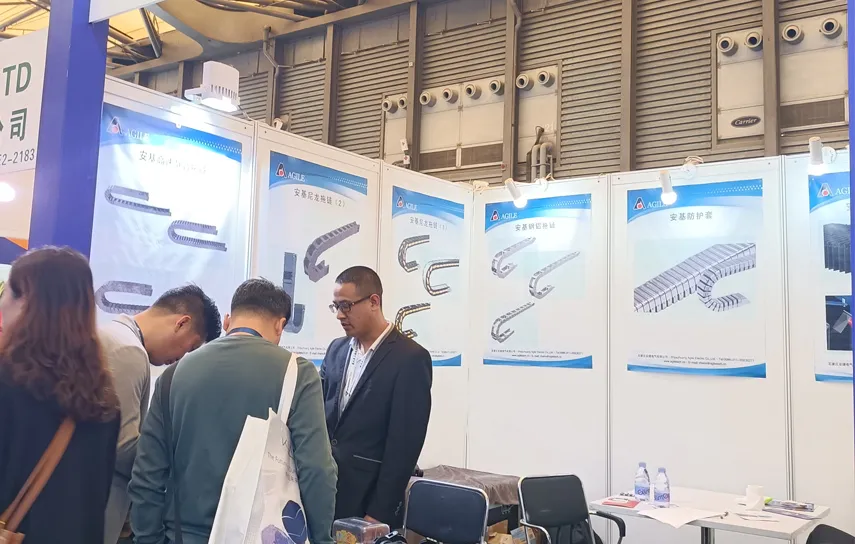flexible cable carrier
Understanding Flexible Cable Carriers A Key Component in Modern Machinery
In today’s fast-paced industrial environment, the need for efficient and reliable machinery is paramount. One often overlooked but critical component contributing to this efficiency is the flexible cable carrier, also known as a drag chain or energy chain. These devices play a vital role in protecting and guiding cables and hoses in various applications, ensuring that machinery operates smoothly while minimizing wear and tear.
Flexible cable carriers are designed to accommodate movement in multi-directional environments, making them essential in industries such as manufacturing, robotics, and automation. Their primary purpose is to manage the flexible cables and hoses that supply power, data, and other essential services to moving parts of machinery. As machinery operates, these cables must bend, twist, and lift without becoming entangled or damaged. This is where flexible cable carriers come into play.
Structure and Functionality
Typically constructed from robust materials such as plastic or metal, flexible cable carriers consist of a series of interconnected links or segments that form a continuous chain. This design allows for flexibility while maintaining structural integrity. Depending on the application, these carriers can be customized in terms of size, shape, and material, making them adaptable to a wide range of environments.
The inner space of a cable carrier can be segmented to accommodate different types of cables and hoses. This organizational feature helps to prevent friction and tangling, thus extending the lifespan of the cables. Moreover, flexible cable carriers can be designed with a low-profile feature, which is essential in applications where space is limited but flexibility is paramount, such as in automated storage and retrieval systems.
Advantages of Using Flexible Cable Carriers
1. Increased Longevity of Cables By providing a protective cover and guiding movement, flexible cable carriers significantly reduce wear and tear on cables and hoses. This prolongs their lifespan and decreases maintenance costs for businesses.
2. Enhanced Safety With cables neatly organized within a cable carrier, the risk of tripping hazards and equipment malfunction decreases. This is especially important in high-traffic industrial environments.
3. Flexibility in Design Flexible cable carriers are available in various designs to cater to specific movement patterns, such as vertical or lateral movement. This versatility allows engineers to tailor solutions according to the unique requirements of their machinery.
flexible cable carrier

4. Reduced Downtime With cables better protected and organized, incidents that could lead to downtime—such as cable failure—are significantly reduced, leading to a more efficient production process.
5. Cost-Effectiveness Although there is an initial investment in purchasing flexible cable carriers, the long-term savings gained from reduced maintenance and downtime often outweigh the costs.
Applications Across Industries
Flexible cable carriers are used in a variety of sectors, including
- Robotics In robotic arms where movement is constant, these carriers are essential for ensuring that power and signal cables stay intact and functional.
- CNC Machines These machines require precise control and constant movement; flexible cable carriers keep the necessary cables organized and accessible.
- Manufacturing In assembly lines where machinery and equipment need to move, these carriers aid in the efficient transfer of energy and information.
Conclusion
Flexible cable carriers are an indispensable part of modern industrial applications. By safeguarding cables and hoses from damage while accommodating dynamic movement, they enhance both the safety and reliability of machinery. As industries continue to innovate and machines become more complex, the importance of flexible cable carriers will only increase, highlighting their critical role in the success of modern manufacturing and automation efforts. Investing in flexible cable carriers means investing in the future reliability and efficiency of industrial operations, making them a fundamental component in the toolkit of engineers and manufacturers alike.








